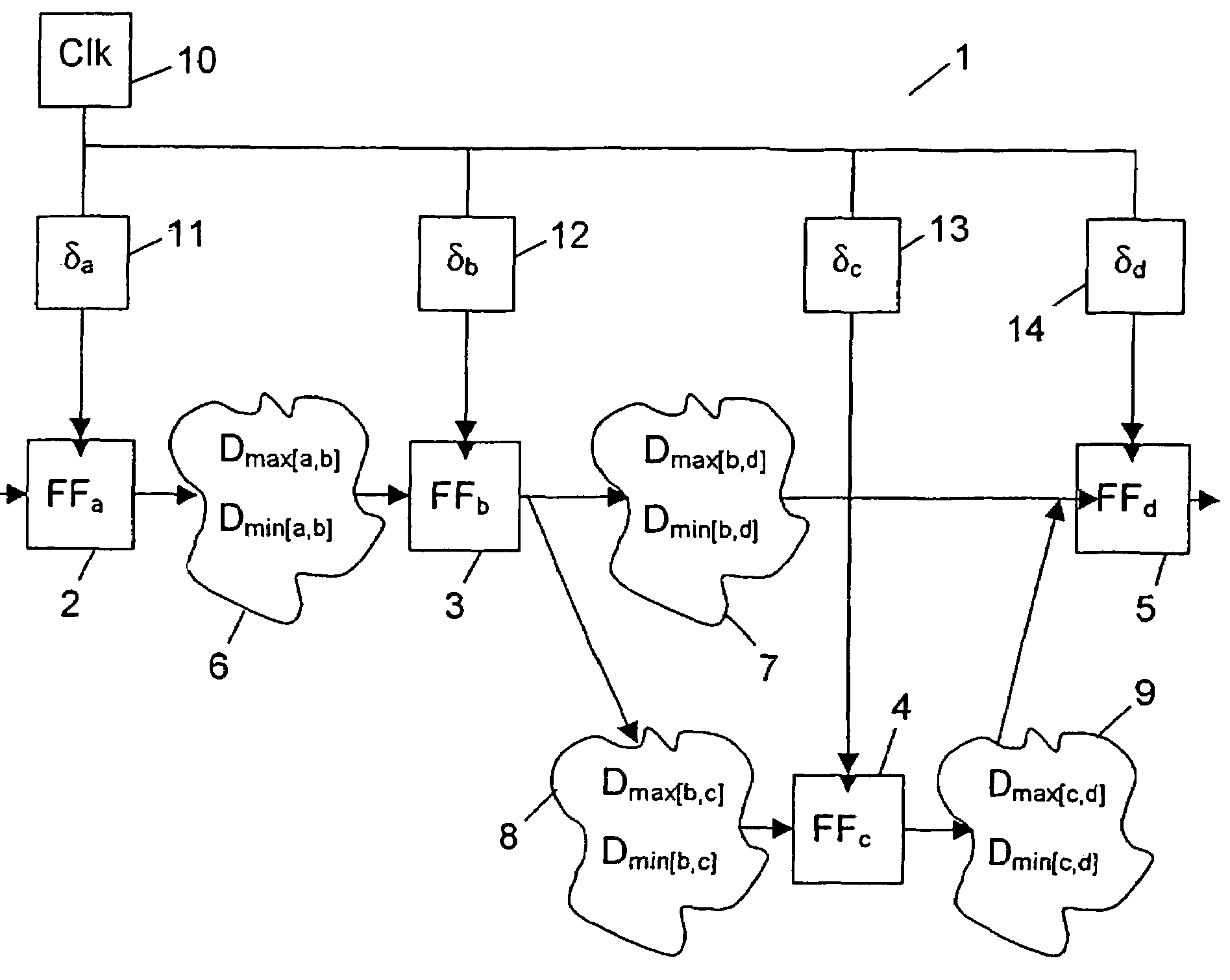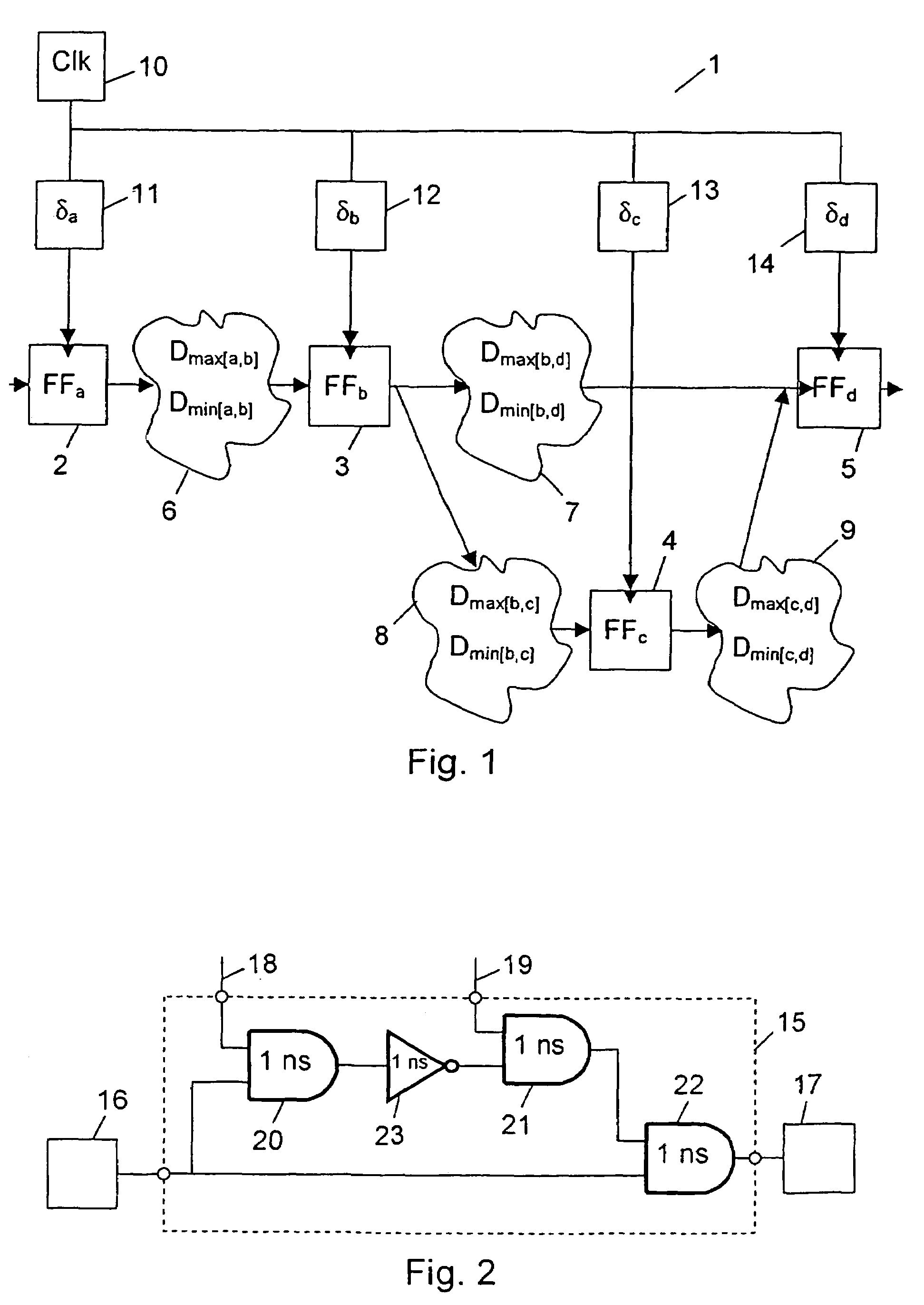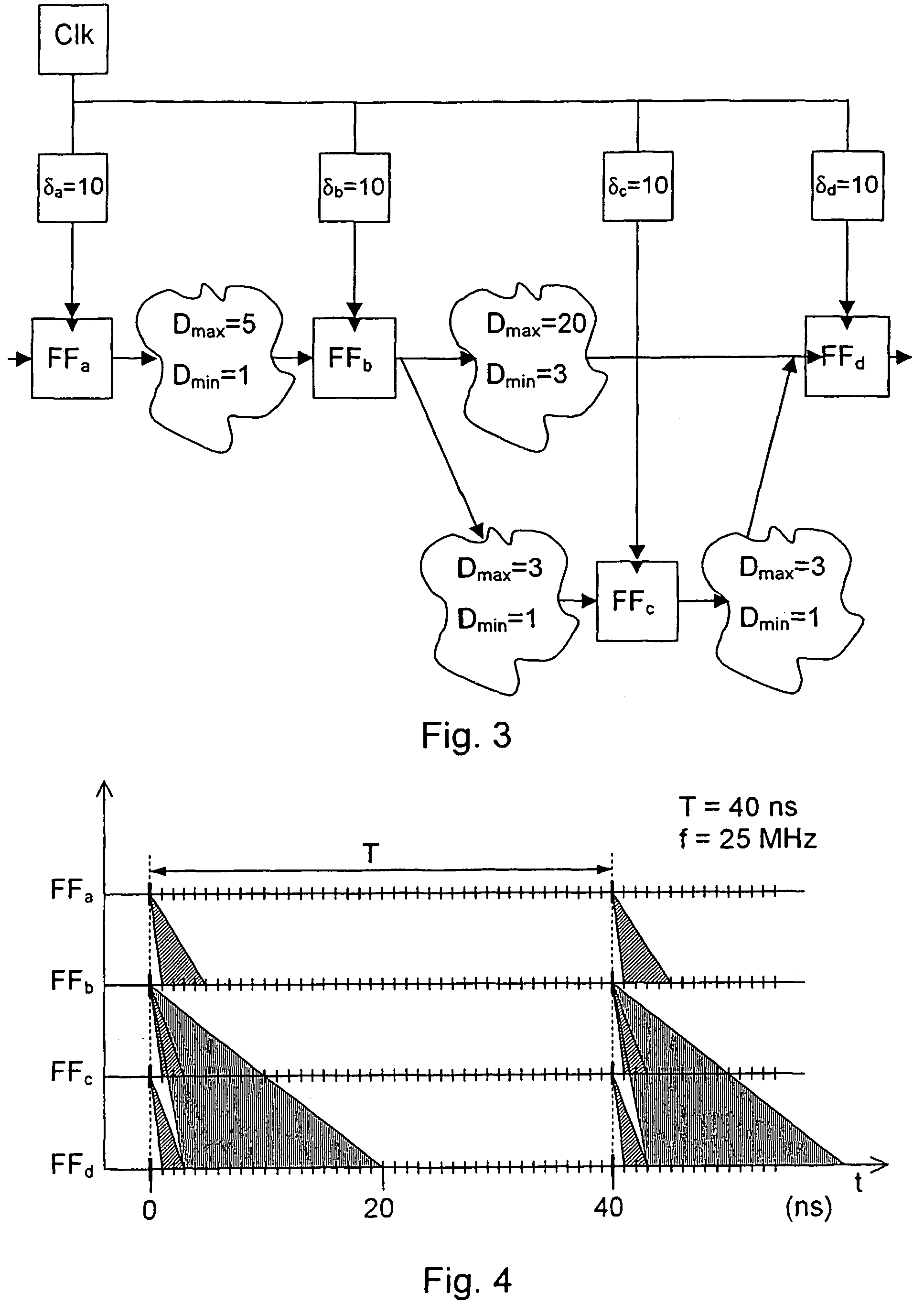Optimization of the design of a synchronous digital circuit
a technology of synchronous digital circuit and design, which is applied in the direction of cad circuit design, program control, instruments, etc., can solve the problems of complex asic design, limited performance of this kind of circuit, and significantly lower clock frequency, so as to achieve simple and cost-effective system
- Summary
- Abstract
- Description
- Claims
- Application Information
AI Technical Summary
Benefits of technology
Problems solved by technology
Method used
Image
Examples
Embodiment Construction
[0046]FIG. 1 illustrates an example of a synchronous digital circuit 1 having four registers 2, 3, 4, and 5 and four blocks of combinational logic 6, 7, 8 and 9. The registers 2, 3, 4, and 5 are also designated FFa, FFb, FFc and FFd, and they are clocked from a clock source 10. The clock is subjected to certain insertion delays δa, δb, δc and δd, indicated by the delay blocks 11, 12, 13 and 14, as it is distributed to the registers.
[0047]Each of the combinational logic blocks 6, 7, 8 and 9 delays the digital signals passing through them. The delay of a combinational logic block, i.e. the delay from the output of one register to the input of another register, may vary between a shortest combinational delay Dmin and a longest combinational delay Dmax. Thus the delay of e.g. the block 6, i.e. the delay from the output of register FFa to the input of register FFb, may vary between a shortest combinational delay Dmin[a,b] and a longest combinational delay Dmax[a,b].
[0048]Very often Dmin ...
PUM
 Login to View More
Login to View More Abstract
Description
Claims
Application Information
 Login to View More
Login to View More - R&D
- Intellectual Property
- Life Sciences
- Materials
- Tech Scout
- Unparalleled Data Quality
- Higher Quality Content
- 60% Fewer Hallucinations
Browse by: Latest US Patents, China's latest patents, Technical Efficacy Thesaurus, Application Domain, Technology Topic, Popular Technical Reports.
© 2025 PatSnap. All rights reserved.Legal|Privacy policy|Modern Slavery Act Transparency Statement|Sitemap|About US| Contact US: help@patsnap.com



